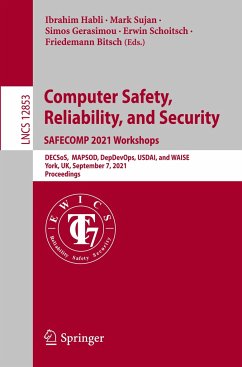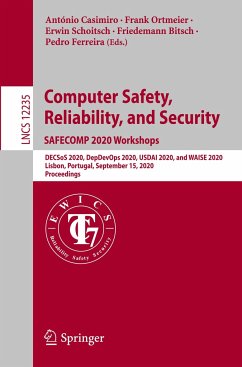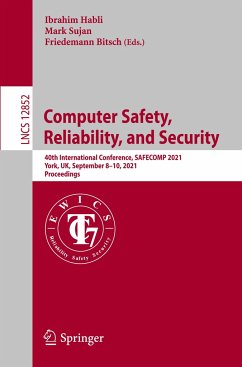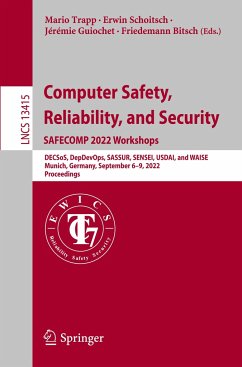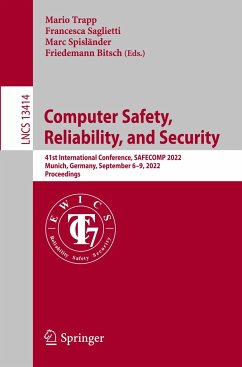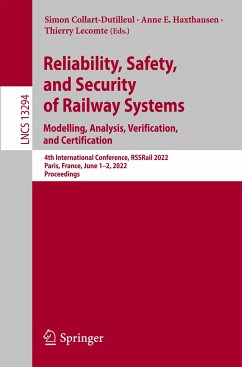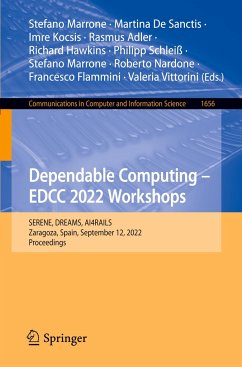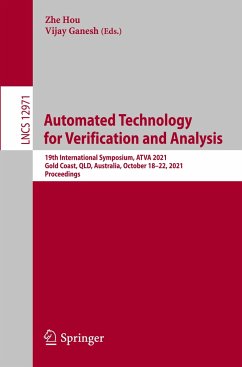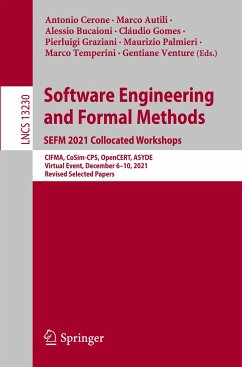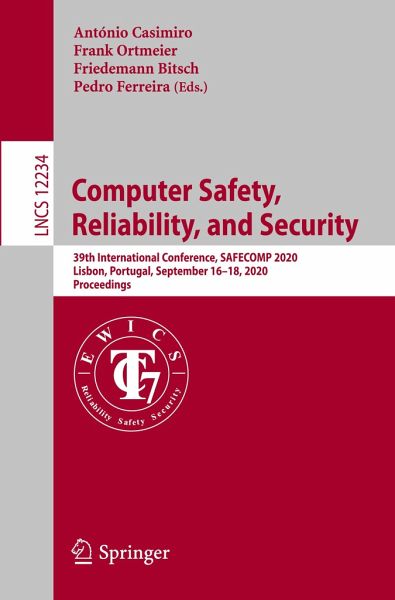
Computer Safety, Reliability, and Security
39th International Conference, SAFECOMP 2020, Lisbon, Portugal, September 16-18, 2020, Proceedings
Herausgegeben: Casimiro, António; Ortmeier, Frank; Bitsch, Friedemann; Ferreira, Pedro

PAYBACK Punkte
33 °P sammeln!
This book constitutes the proceedings of the 39th International Conference on Computer Safety, Reliability and Security, SAFECOMP 2020, held in Lisbon, Portugal, in September 2020._The 27 full and 2 short papers included in this volume were carefully reviewed and selected from 116 submissions. They were organized in topical sections named: safety cases and argumentation; formal verification and analysis; security modelling and methods; assurance of learning-enabled systems; practical experience and tools; threat analysis and risk mitigation; cyber-physical systems security; and fault injection...
This book constitutes the proceedings of the 39th International Conference on Computer Safety, Reliability and Security, SAFECOMP 2020, held in Lisbon, Portugal, in September 2020._
The 27 full and 2 short papers included in this volume were carefully reviewed and selected from 116 submissions. They were organized in topical sections named: safety cases and argumentation; formal verification and analysis; security modelling and methods; assurance of learning-enabled systems; practical experience and tools; threat analysis and risk mitigation; cyber-physical systems security; and fault injection and fault tolerance.
_The conference was held virtually due to the COVID-19 pandemic.
The chapter 'Assurance Argument Elements for Off-the-Shelf, Complex Computational Hardware' is available open access under an Open Government License 3.0 via link.springer.com.
The 27 full and 2 short papers included in this volume were carefully reviewed and selected from 116 submissions. They were organized in topical sections named: safety cases and argumentation; formal verification and analysis; security modelling and methods; assurance of learning-enabled systems; practical experience and tools; threat analysis and risk mitigation; cyber-physical systems security; and fault injection and fault tolerance.
_The conference was held virtually due to the COVID-19 pandemic.
The chapter 'Assurance Argument Elements for Off-the-Shelf, Complex Computational Hardware' is available open access under an Open Government License 3.0 via link.springer.com.





